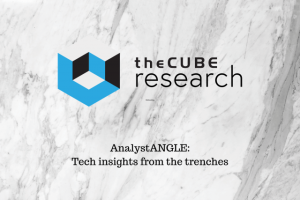Teradata is a heavyweight in the data warehouse world, but that world is undergoing rapid change. As a result, Teradata is taking significant steps to make sure it has a place atop the developing Big Data landscape.
Teradata is aggressively acquiring (present tense) Hadoop-focused start-ups, a process that began in 2011 with its acquisition of Aster Data Systems. In 2012, Teradata entered into a partnership with Hortonworks, which includes deep technical integration between HDP and Teradata’s Aster & data warehouse platforms. The Hortonworks partnership also includes a reseller arrangement that is beginning to deliver real revenue for both companies. More recently, Teradata acquired Hadapt, a start-up that built one of the first SQL-on-Hadoop technologies, and Revalytics, another start-up specializing in Hadoop-focused data management.
This week, Teradata picked up yet another Hadoop company, this time in the Big Data professional services space.
Specifically, Teradata announced on Wednesday it will acquire Think Big Analytics, a professional services firm that specializes in helping its enterprise clients architect and deploy Big Data technology including Hadoop and NoSQL databases. The company, whose clients include Johnson & Johnson, Ancestry.com and Facebook, also provides data science consulting to help its clients make sense of all the data that lives in those systems. Teradata says it will allow Think Big, as it now known, to continue operating largely independently.
The Think Big deal is an interesting one. The acquisition puts Teradata directly into the Big Data professional services business, a high-margin business that is difficult to scale. That Teradata would make such a move illustrates, along with other acquisitions and partnerships the company has made, that it sees the writing on the wall that the enterprise data warehouse is no longer the center of the data universe. The company has built a hugely successful business building and selling powerful but expensive proprietary data warehouse appliances, a business model that is a poor fit in a world of Big Data characterized by open source software and commodity hardware.
So what is Teradata to do? The company must continue to build out its Hadoop capabilities through a combination of acquisitions, partnerships and internal R&D, as Hadoop is the foundational technology of the modern data architecture. In addition, however, Teradata needs to move up the stack and develop differentiated analytics software and applications that help customers solve specific business problems. It must do so because the cost characteristics of Hadoop mean Teradata can’t rely on Hadoop revenue to make up the difference from its slowing data warehouse business and, even if it could, the Hadoop market is already crowded with vendors such as the aforementioned Hortonworks, MapR, Cloudera, Pivotal and IBM.
In addition, such targeted software and applications are largely absent from the market today but are necessary for mainstream enterprises to realize the full value of Big Data analytics. Wikibon believes there is significant market opportunity for vendors that deliver such applications, and Teradata, with its long history in the analytics business, is well positioned to capitalize on this opportunity if it chooses to do so.
Action Item: Teradata has already made a start in this direction with its suite of marketing optimization applications. The company needs to develop additional targeted applications in key vertical industries including financial services, retail and healthcare, industries heavily represented in its customer base. If it takes this path while continuing to serve as a trusted data management steward to its clients, Wikibon believes Teradata has a good chance of coming out the other side of the current Big Data disruption in a strong market position.

